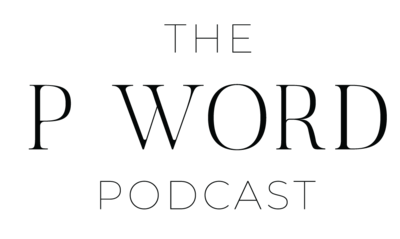Your Story Matters – 3 Reasons to Share it With Your Audience
What is a Story?
Everything that a person has experienced in their lives, the good, the bad, and the seemingly irrelevant, all combine to shape them into the person they’ve become. Experiences, challenges, high and low points, all matter in determining who we are and what we strive toward. Your story, as it pertains to your business, serves a similar purpose. It lets your audience and ultimately your clients or customers, understand where you’re coming from and why you do what you do.
Why You Need a Story to Engage With Your Audience
Sharing your story with your audience keeps them engaged. While they may not have the exact same experiences or lived through similar situations, what they can relate to, are the pain points that led you to where you are now. The emotions of your story, what you felt that caused you to come to a turning point in your life, is the key part of your story. So, while your audience may not fully relate to every exact aspect of your life, they will be drawn in by the emotions of your story and the catalyst for change. Getting to the heart of your ‘why’ lends emotion to your story, and emotion sells. Read on to learn 3 reasons to share your story with your audience.


3 Reasons To Share Your Story
Sharing your story helps your audience relate to you. A good story; gives enough of a background to get people to perk up and listen to you. It often provides a bit of a pain point; something they can relate to. For example, common pain points include, not having enough time, not having enough money, or having an issue with our health or well-being. Often it can be a combination of the three. Most people can relate to some or all of these in one way or another. Just being human in the society we live in, brings about these pain points. Many of us work too hard in our corporate jobs and often don’t have enough time to spend with the people we love. As a result, our relationships falter or our health fails. This is common for many people, especially women in the workforce.
When people can relate to you, they trust what you have to say. The more transparent you are, the easier it is to trust you. Now, this doesn’t mean laying out every little aspect of your life on the internet, though of course, you could do that, and some people actually do earn a decent living vlogging on YouTube, but baring your soul isn’t necessary if you don’t want to do so. Simply pulling back the curtain a bit, every once in a while, and letting your audience into the behind the scenes, can be enough to engage them and get them thinking of you as an actual human with emotions and feelings, vs. some account on Instagram or blogger on the internet.
Sharing our stories can help others in similar positions. Share your story to include your pain point and how it propelled you forward into the life you’re leading now. We share our stories, not to brag about how far we come, but rather, to add value to others’ lives and help them find solutions to their challenges. As women entrepreneurs, our goal is to help others reach their goals. The best way to do this is to be transparent about our own struggles and our own journey so that they too, see themselves in us.
Tips to Help You Share Your Story
Your story is about you, yet at the same time, it really isn’t. Now that may seem completely opposed to everything noted above, but it’s true. While your story is in fact, your story, it’s really not about you. It should be told in such a way that it helps your audience relate to you. When crafting your story; essentially provide just a few sentences that you can use to draw your audience in, focus on their perspective. What it is about you that would make them lean in and listen. So, share your story in such a way that it provides value to your audience.
Let them in on your background, where you come from, your career; whatever relevant piece you think they need to know, to truly understand you. And, once you’ve done this, let them in on the challenges you faced in that role. There’s always a turning point, a time when we sit back and say ‘no more, something has to change’ Let your audience in on that turning point. What was the catalyst for change in your story? That will be the pain point that they can relate to.
You also always want to consider the fact that honestly, you’re not that special. Everyone has a story, everyone has a turning point of ‘fed-up’ Your audience wants more. They want to know what you have that will help them. People want to know what’s in it for them if they listen to you. So tell them.
Continue to Hone Your Story Until it Feels Right
Once you have a compelling brand story written down, take some time away, and then come back to it later. There will be tweaks and edits along the way. It could take months until it feels right to you and it just rolls off your tongue effortlessly. Practice telling your story. Share it in online forums, in your social media posts; anywhere you can. The more you practice, the more you can hone in on parts that hit just right and remove and edit the pieces that just fall flat.
When it feels right, you’ll know it and people will resonate with it. They’ll understand, relate, and ultimately begin to trust you. Your audience will start to think, ‘hey, if she can get out of that rut, so can I, I want to do what she’s doing, I need to listen to her.’ And thus, a new client is born.
Other Related Articles
How to Discover Your Niche and Create Amazing Content
Why You Should Invest In A Professional Photographer For Your Brand
What You Need To Know Before Starting A Blog
This post may contain affiliate links; see site footer for more details.
Categorized in:








Be the First to Comment